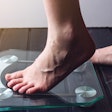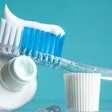
Children with cerebral palsy may have more dental caries and a lower oral health-related quality of life, according to the findings of a recent study. These findings may have to do with movement and eating limitations associated with the neurological condition.
Researchers looked at the oral health of almost 100 children in rural Bangladesh to see what associations existed between caries experience, oral health quality of life, and cerebral palsy. They published their report in BMC Oral Health (January 15, 2019).
"Healthcare professionals should be aware of the importance of dental health and oral hygiene in this population," wrote the authors, led by Rahena Akhter, BDS, PhD, a senior lecturer at the University of Sydney dental school in Australia. "These findings highlight the need for oral health promotion programs for children and adolescents with [cerebral palsy] in these settings to reduce pain and improve quality of life."
Movement's effect on oral health
Cerebral palsy is a neurological disorder with a prevalence rate estimated at nearly 1 out of every 323 children in the U.S., according to the U.S. Centers for Disease Control and Prevention. The disorder affects children's motor and balance skills, and it can also be associated with speech problems, learning disabilities, and seizures.
Previous research has shown that children with cerebral palsy are more likely to experience untreated dental caries than the general population. However, few studies have examined how this translates to oral health quality of life, particularly for children in resource-poor countries.
Therefore, the researchers gathered oral health data from 90 children and adolescents with cerebral palsy in rural Bangladesh. A dentist screened the children for decayed, missing, and filled teeth. Then, parents answered a 24-question survey about their children's oral health quality of life, such as how often their children experience mouth sores or get food caught between their teeth.
The children in this study had an average of 3.18 decayed, missing, and filled teeth. This was significantly higher than the reported averages for children without cerebral palsy, the study authors noted.
"Previous research from Bangladesh reported that children aged 6 years without [cerebral palsy] had an average caries experience score of 1.1 and children and adolescents aged 8 to 12 years had a score of 1.72," they wrote. "This is significantly less than the mean found in this study of children and adolescents living with [cerebral palsy]."
However, oral health quality of life varied considerably for children with cerebral palsy depending on whether they had caries. Children with cerebral palsy and caries were significantly more likely to get food caught between their teeth and have trouble eating and drinking. They also had a significantly increased risk of tooth pain, bad breath, trouble sleeping, and not smiling.
"Amongst children and adolescents with [cerebral palsy] who had caries present, pain in the teeth/mouth was approximately 7.3-times more prevalent, food caught between teeth was approximately 6.4-times higher, and having trouble in drinking, eating, or chewing firm foods was approximately 5.9-times greater than for children and adolescents without caries experience," the authors wrote.
Importance of dental care
This study had a number of shortcomings, perhaps most notably that the children included in the study were from a rural town in Bangladesh, and, therefore, the findings may not apply to children with cerebral palsy from cities or higher-income countries. For instance, most of the children in the study had never seen a dentist or visited a dental clinic, the authors noted.
Nevertheless, the findings highlight the importance of dental care for children with cerebral palsy, particularly for those who have trouble eating or regularly get food caught between their teeth.
"Our data suggest that children and adolescents are at increased risk of negative oral health-related quality of life," the authors concluded. "Efforts should be made to develop an effective oral health promotion program for children and adolescents with [cerebral palsy] in rural Bangladesh and other resource-scarce settings."


















